- Home
- Tim Lebbon
Desolation Page 6
Desolation Read online
Page 6
He strips and the humming alters its tone, as if changed by grinning lips.
The gown is rough and itchy. The underwear is worse. Cain folds his clothes on the chair, then opens the door to go back into the operating theater. The sourceless humming stops with a snigger, or perhaps it is the door hinge squeaking. From upstairs he hears the heating creaking on, the boiler firing up; the realization that they were still at home comes as something of a surprise, and yet, perversely, a comfort as well.
Cain’s father smiles as he loads a syringe with a foul green concoction, something glowing and steaming that will put Cain to sleep, small things bumping frantically in the glass tube as if eager to dull his consciousness.
It’s all for the best, his father says, and his eyes have taken on the same sickly green tinge.
Cain lies down on the operating table and falls asleep.
In his dream he imagines a cool, scarp scalpel descending toward his eye, and when he wakes up he is always somewhere else.
He was unsure whether this was the memory of an old dream, skewed into a version of reality by time, or something more removed. There were no scars, no acorns pressed into his eyes, no feathered cuts across his throat. There was no evidence that this had ever happened at all.
Memory was a fickle thing, exercised as it was in a place where true imagination was the only place to wander.
Cain paused outside Flat Three, smiling selfconsciously at the door in case Magenta was already home and watching him. He moved closer to listen. No sounds from inside, no music, no signs of life. Perhaps that urge to impersonate had taken her again on the way home. He wondered whether she had always been a clown, but it seemed quite certain that she had not. He looked at his fingers and saw colorful makeup smeared there, but then he remembered that he had not touched her after all, and the paint was gone.
He had seen nothing when he looked into her eyes—nothing more than he should have—and he was glad. He did not like knowing more. It made him believe that he was more like his father than he could bear.
He stood there for some time, thinking about Magenta, wondering who she was. An impersonator, but for whom had she been impersonating? Was she a true street artist, practicing her art for the love of it and nothing more? He had not seen a collection dish as she sat outside the takeaway. And a dozen local shops were probably not the best place to do something like this for profit.
She had been eating when he arrived; she had only actually performed for him.
“No,” he muttered against the wood of her door.
“I would.”
Cain spun around. A man stood on the staircase leading from the ground floor, one foot on the first-floor landing, a bag in each hand. He had a long gray ponytail and a face as wrinkled as old leather. Cain felt vaguely guilty at being discovered leaning against Magenta’s door, and he would have apologized if the man had not spoken first.
“I mean, I’m sure you would too. Sexy girl. Mostly. Difficult to tell sometimes, of course.”
“I don’t think I know you,” Cain said, uttering the obvious, buying time to recover from the shock. His heart was beating the same way it did when the siren sounded, and he felt chided by this stranger.
“You don’t, yet.” Saying no more, the stranger set the bags down on the landing, unlocked the door to Flat Four, picked up his bags, glanced once more at Cain, and went inside. The door slammed shut, locks were thrown, chains rattled, and seemingly before the last key had turned Cain heard the first muted hoot of a pan pipe.
“Nice to meet you too,” he said, but his anger lasted only seconds. It was melted away by the music. There was no real tune, but there is no order to the roaring of waves on rocks or the whisper of leaves in a breeze, and yet they comfort and ease. The music came to a sudden stop, cut off by a dull thump, and Cain hurried up the stairs to Flat Five. He glanced at the scored door next to his while he fumbled with his keys. Vlad had been found with his stomach eaten, Peter had said. Cain wondered whether whatever had done it had been looking for someone else.
Inside his flat he felt at ease once again. Alone. At Afresh he had sometimes preferred his own company, even though he hardly knew himself. He would sit for hours listening to music or reading, and then a sudden awareness of his own presence would shock him as much as finding someone else in the room. The Voice told him that it was a result of spending so much time cut off from outside influence, and that such an upbringing had inevitably created a solipsistic side to his thoughts. Free of his father at last, discovering the truth of the world with his senses as well as his mind, it was only natural that he sometimes thought of himself as a stranger.
He made a cold drink, put on the Mozart CD, and relaxed back on the sofa. Classical music always lifted and lowered him, swirled around and through him, and with his eyes closed he was easily lost to its influence, controlled and owned by every minor element of the whole. Closing his eyes also brought the siren closer; with less to hold it off it crept back, promising pain were he to overstep boundaries. But there were no boundaries anymore. He had to convince himself of that. He used the remote control to turn up the music, taunting the siren and cringing inside at the same time, waiting for the thunderous pain that would surely come again someday.
A tear rolled from his closed eye. He left it to run down his cheek, relishing the sensation.
The CD finished after an hour. He had listened in vain for any trace of that tune he hummed and which had been hummed to him, but there was nothing there. He would find it someday . . . and yet he was not certain he wished to find it. Because it was not simply a tune that he had brought out of his time with his father. And though that other element—that presence—had not appeared to him since being taken from the house in the chest, it terrified him still.
It was only midafternoon, but already he was tired. The sun cut in across the back garden and into his bedroom, and he opened the curtains before stripping and lying on his huge double bed. With Mozart now silent, Cain’s mind was left to drift in other directions, and he fell asleep thinking of that dancing clown Magenta.
He woke up later that evening fully refreshed and relieved that his rest had been dreamless. But as the sun went down and the noises began, he wished that he were still asleep.
Initially it was quiet, with only the purr of occasional traffic and the distant voices of playing children marring the peace. It was twilight, the half-moon high in the dark blue sky, thin cloud cover smudging its light across the heavens. A few lonely birds sang their last before night came to carry them into sleep. Cain lay on his bed, chilled now that the sun was no longer resting across his body, but too relaxed to move. He had an erection and he held it, imagining it wrapped by Magenta’s hand instead of his own. But in his mind’s eye she smiled that strange, mocking smile, and he opened his eyes and sat up before asking whom she was impersonating, and for whom. His lust dwindled as he dressed.
And then the noises began. A loud thump—it came from downstairs, he felt it vibrate through his feet—followed by an expectant silence. Cain held his breath and stood still, waiting for more. As if waiting with him, the next crash came as he finally relaxed and breathed out. He felt this one harder than the first, traveling up through the balls of his feet and into his skull like the suggestion of chaos.
His telephone rang, and he realized that he had forgotten to call Afresh.
There was one final crash as he reached for the bedside telephone, and then a long, high scream that raised the hairs on his arms, tightened his balls, and made him wish for the siren to scream in and camouflage the cry.
He grabbed the receiver, barely registering that this was the first time he had ever answered his own telephone. The scream had faded away, and the building held its breath.
“Hello?”
It was the Voice, berating him for not calling, asking how things were, how was he, was he adjusting well, were the other residents welcoming, was the landlord helpful?
“Everything’s fine,” C
ain said, thinking of that scream rising and rising until it seemed to pass out of his audible range. Perhaps it continued still, higher and higher, and he pressed the receiver to his ear to deny the scream any subliminal power.
Was he sure? the Voice asked. He sounded tired, worried, how about—
“Really, everything’s fine,” Cain said, trying his best to inject some certainty into his voice. “Just woke from an afternoon nap, that’s all. Forgot to call you. Tiring day, everything’s new.” He kept his sentences short, listening for more noises from downstairs. Should he be going to help? Calling the police? An ambulance?
The Voice asked if he was sure.
“I promise. Look, I’ll call you tomorrow. Oh, I met some of the other residents today.”
The Voice rose, interest giving it a higher lilt, as it asked what they were like.
Cain could not reply. He was in a panic of indecision. He was on the phone now to the man who had helped him for the past six years, and he did not know how to ask what he should do. I just heard a scream, he needed to say, like someone being killed. What should I do? And today I met the clown who lives downstairs.
A laugh. It came from somewhere different, but still in the house. It was made androgynous by being filtered through walls and floors, but it was unmistakably the sound of merriment. And then another echoed the first, and Cain finally knew he had to respond.
“I’ll call you tomorrow,” he said, and hung up.
Somewhere in the building doors opened and closed. Children no longer shouted in the garden farther along the street; their parents must have called them in from the dangerous dark, taken them in to safety. The house fell quiet again, but it was a loaded silence, filled with expectation. Cain imagined the other residents standing at their windows as he was now, staring out into the deepening dark, wondering what they would see. The thought of that story came again, and he looked out into the garden in search of a murder.
Another door slammed, sending a shiver through the house. It held the sound of finality, and he knew that someone had left the building. He saw a shape staggering away from the house. It was just light enough for him to see that the shape was George. He seemed bent over as he ran, as if clutching something to his stomach, and his long hair hung down around his face in shiny wet clumps. He moved from the patio into an area of shrubs, paused, looked around, and hurried across the lawn until he was standing beneath a tree. George seemed to be favoring the shadows. Barely a shadow himself now, he headed off again, stumbled and fell, and even through the closed windows Cain heard the screech of pain. George rolled on the grass for a few seconds like a dog scratching its back, then stood and staggered to the rear of the garden. Cain lost him in the shadows, but as he opened the sliding doors he heard undergrowth being whipped and crushed, and cold moonlight revealed the heads of tall bushes thrashing at the night. George cried out again, and Cain almost shouted after him. But that image of others watching this happen was still there, and he chose silence. He stepped out onto the small balcony, glanced up at the roof ridge, down at the closed window on the first floor below. He seemed alone, but something felt staged about this whole thing. He had exposed himself by stepping out onto the balcony, but he already felt the center of attention.
Cain looked to the end of the garden again, and moonlight showed him the timber gate open and a shadow sneak out. George was gone, carrying away whatever pained him.
Cain would follow. He would not stand passively by, not like those people in the story. The idea hit him quick and hard, insistent as hunger, and the thought surprised him. He did not know George, and their brief meeting the night before had done little to endear him to the man. But the way he had been staggering across the garden, those screeches of pain . . . what if he had been attacked? He was holding his stomach as if he had been shot or stabbed, and then Vlad sprang to mind, the erstwhile occupant of Cain’s flat, found dead miles from here in Rich Common with his stomach eaten. There’s nothing scratching at my door, he thought. Nothing seeking me tonight. It’s George.
Cain did not know exactly what drove him to shrug on his jacket and leave the flat. It was not purely concern for George, a man he did not know. A sense of humanity perhaps? But his father had done his best to leech that from him, and Cain still found it difficult to empathize with other people. If anything, it was curiosity. And perhaps a sense that because he could leave his flat—do what he wished, on a night filled with dangers unknown—then he should.
He closed his door and hurried downstairs, feeling eyes on him all the way.
The third door he tried at the back of the house led to the garden. The first had revealed the basement stairs, and the second hid a cupboard containing electric and gas meters, cleaning products, and an empty first-aid box. Each time he opened and closed a door he listened out for more laugher, but there was no more.
It was much cooler outside than he had expected. Night had fallen fully now, and the half-full moon shone through the wispy cloud cover and made shadows of everything. Its light seemed to deaden noise. A car went by, perhaps streets away, and the sibilant voice of a television came from somewhere to his left, but they were little more than whispers.
Cain had always enjoyed the night. He had spent so much of his childhood in the dark, hidden away, the gift of vision withheld. When his father was experimenting, darkness always sharpened Cain’s other senses. He would smell cooking from elsewhere in the house, hear the sounds of timber settling around him as the building bled heat to the cool dark, taste rain on the air, even deep in the basement. Darkness was his friend. He had read that fear of the dark was usually fear of what might be in it. Cain had always been much more afraid of what he could see.
Fearless, he walked into the garden of Number 13. George’s pain had been evident, but it had been from an injury that had happened back in the house, not out here. Glancing behind and above, he saw his own dark window and, to the side, the unlit window of Flat Four. If Whistler was watching, he gave no sign. Perhaps he was standing there touching his pipes, wondering when would be the best time to let his tunes float free.
Cain moved down the garden, trying to follow the staggered route he had seen George taking. Beneath the tree Cain paused and knelt down, running his fingers through the grass, trying to know more than he should. He closed his eyes and imagined himself back in that room in his father’s house, alone but for the occasional humming, totally withdrawn, seeing and hearing and sensing nothing other than his own body and mind. He breathed deeply and slowly, trying not to smell, determined not to taste evening on the air. He willed the shadow to talk, but it remained stubbornly silent, sneering at the back of his mind, hidden away and promising nothing new. A guilty comfort settled over him. He hated that room, and yet it was where he felt safest, most at home, those feelings belying the years of effort at Afresh and the wishes of his conscious mind to leave that place far behind. Freeing his thoughts, Cain found peace in the worst time of his life. His fingertips brushed the cool grass, and the siren exploded in his mind.
He howled and fell onto his side, vomiting, hands clamped to his ears, but already the phantom sound was a memory. It left only pain behind. Cain panted, tried to lift himself from the ground and away from the smells of damp earth and puke, the feel of grass against his cheek. But the siren was gone. He was alone and afraid, back in the now.
Cain felt guilty and dirty, as if he had been caught masturbating. He often knew things he should not, and he hated that; it was left over from his father, the house, and the Pure Sight he knew so little about. But on the rare occasions when he tried to bring on that knowledge himself, he always felt like shit afterward.
This time, he knew nothing.
He stood and hurried through the garden to the back gate. It was open, and beyond was revealed a narrow access lane. Hedges and garages on either side shielded the lane from much of the moonlight, and most of it remained shadowed and unknown. It must have been a few minutes since George had passed this way, and
Cain was about to despair about ever finding him when he heard the clatter of something falling against a garage door. Seconds later came a long, low moan of someone in pain, and he knew that George had not moved far.
Cain started along the lane. He was still shivering from the impact of the siren. He knew it was all memory, a Pavlovian reaction that he would probably never fully escape, but still his eardrums rang and his heart hammered with the memory. He tried to spit the taste of sick from his mouth, so redolent of the basement in his father’s house. The sickness was a relatively new reaction to the siren. The Voice said it proved that Cain now knew that it was only memory, and not some curse that would haunt him all his life. Cain believed that it proved fuck all, other than the fact that his father had damaged him forever.
And besides, what was memory if not a curse?
He turned a corner and moonlight swarmed down, coloring the open space before him liquid silver. The area was faced on three sides with garages, many of their doors daubed with graffiti that may have looked at home in a modern art gallery. At least this was vandalism with pride. One of the garages was open, revealing darkness and the hint of a metallic shape lurking inside, the smells of leaked oil rich and potent. In front of the garages, in the center of the open area, lay a burned-out car. Its blackened frame seemed to reject moonlight, casting itself into a shadow, and Cain had a sudden unpleasant memory of his company in the basement, that humming thing that had taken up more space than it should. He edged around the car, not liking it one bit. By being burned and having its purpose destroyed, perhaps it had moved slightly out of the world.

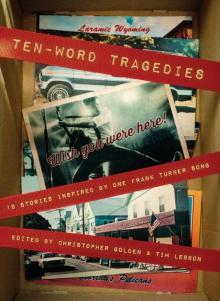 Ten-Word Tragedies
Ten-Word Tragedies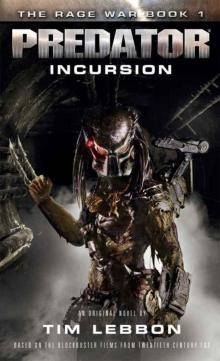 Predator: Incursion
Predator: Incursion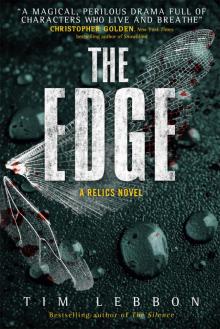 Relics--The Edge
Relics--The Edge Firefly
Firefly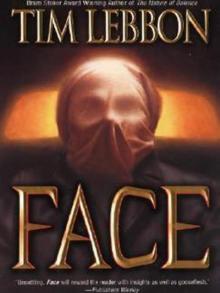 Face
Face Generations
Generations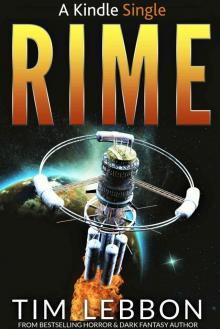 RIME (Kindle Single)
RIME (Kindle Single) Fallen
Fallen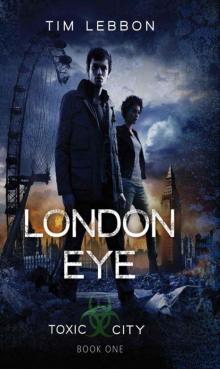 London Eye tc-1
London Eye tc-1 Kong: Skull Island
Kong: Skull Island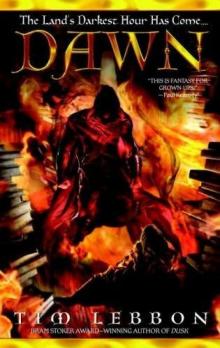 Dawn n-2
Dawn n-2 Into the Void: Star Wars (Dawn of the Jedi)
Into the Void: Star Wars (Dawn of the Jedi)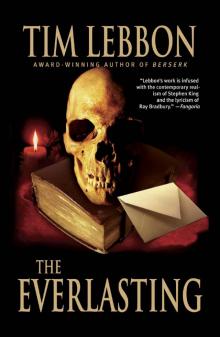 The Everlasting
The Everlasting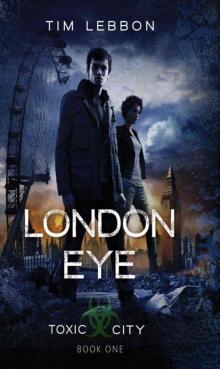 London Eye: 1 (Toxic City)
London Eye: 1 (Toxic City)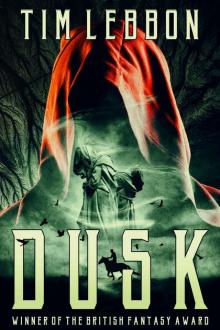 Dusk: a dark fantasy novel (A Noreela novel)
Dusk: a dark fantasy novel (A Noreela novel)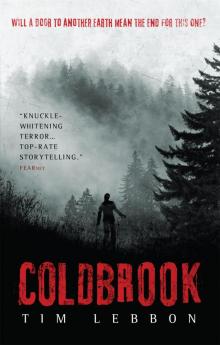 Coldbrook
Coldbrook Alien
Alien Dusk
Dusk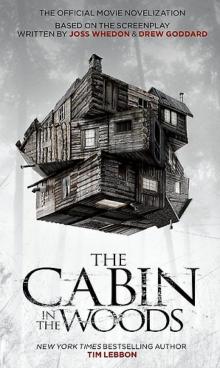 The Cabin in the Woods
The Cabin in the Woods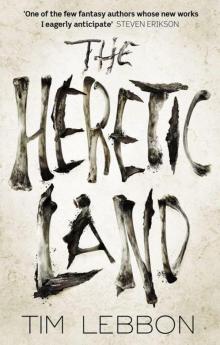 The Heretic Land
The Heretic Land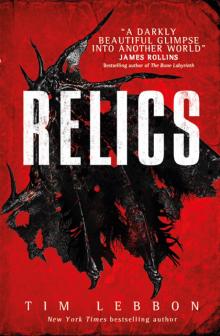 Relics
Relics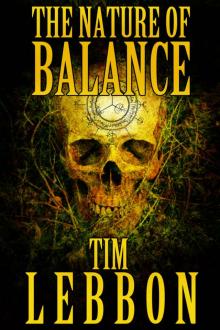 The Nature of Balance
The Nature of Balance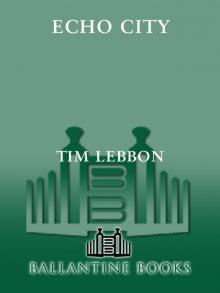 Echo City
Echo City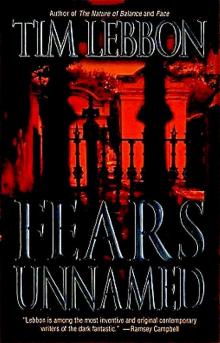 Tim Lebbon - Fears Unnamed
Tim Lebbon - Fears Unnamed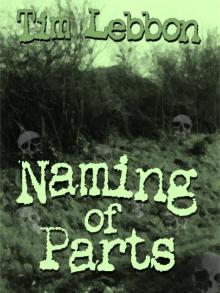 Naming of Parts
Naming of Parts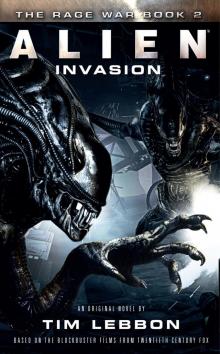 Alien--Invasion
Alien--Invasion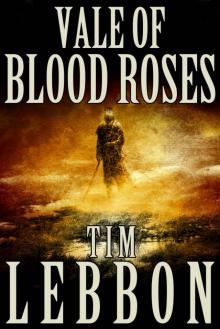 Vale of Blood Roses
Vale of Blood Roses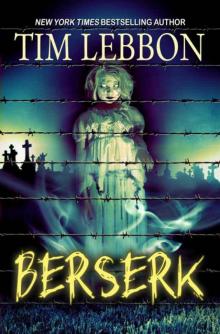 Berserk
Berserk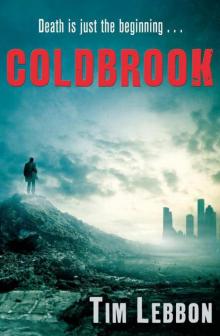 Coldbrook (Hammer)
Coldbrook (Hammer)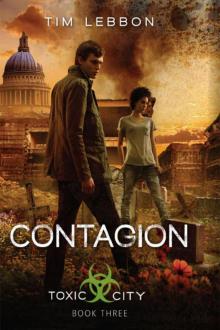 Contagion tc-3
Contagion tc-3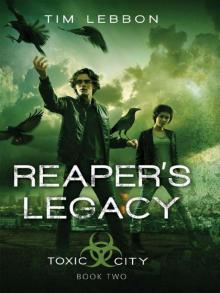 Reaper's Legacy: Book Two (Toxic City)
Reaper's Legacy: Book Two (Toxic City)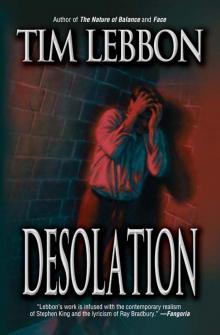 Desolation
Desolation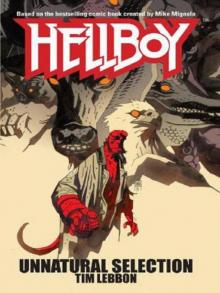 Unnatural Selection
Unnatural Selection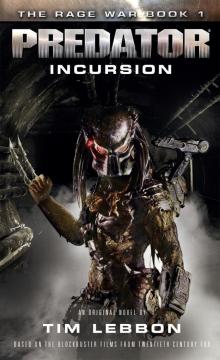 Predator - Incursion
Predator - Incursion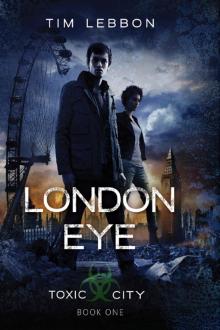 London Eye
London Eye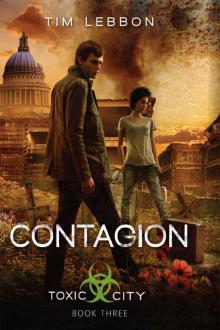 Contagion (Toxic City Book Three)
Contagion (Toxic City Book Three) The Silence
The Silence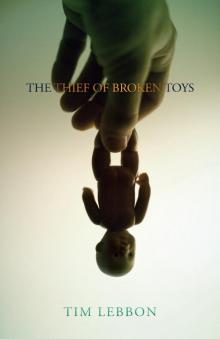 The Thief of Broken Toys
The Thief of Broken Toys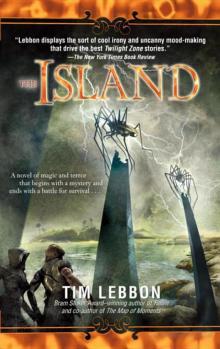 Tales of Noreela 04: The Island
Tales of Noreela 04: The Island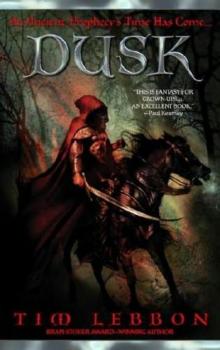 Dusk n-1
Dusk n-1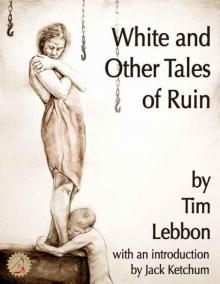 White and Other Tales of Ruin
White and Other Tales of Ruin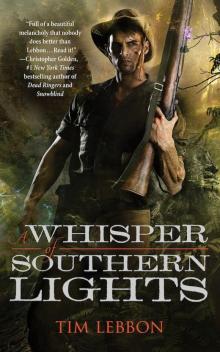 A Whisper of Southern Lights
A Whisper of Southern Lights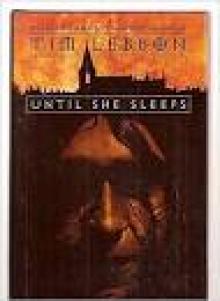 Until She Sleeps
Until She Sleeps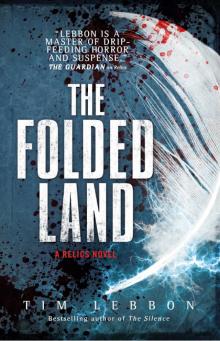 Relics--The Folded Land
Relics--The Folded Land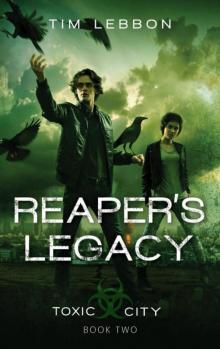 Reaper's Legacy tc-2
Reaper's Legacy tc-2 Alien: Out of the Shadows
Alien: Out of the Shadows Pieces of Hate
Pieces of Hate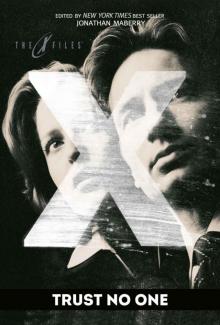 X-Files: Trust No One
X-Files: Trust No One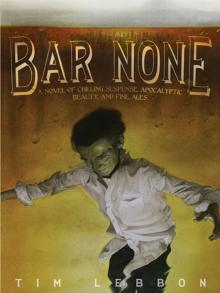 Bar None
Bar None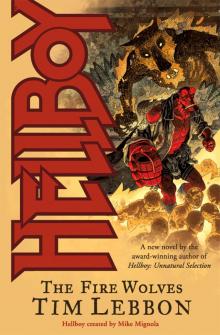 The Fire Wolves
The Fire Wolves